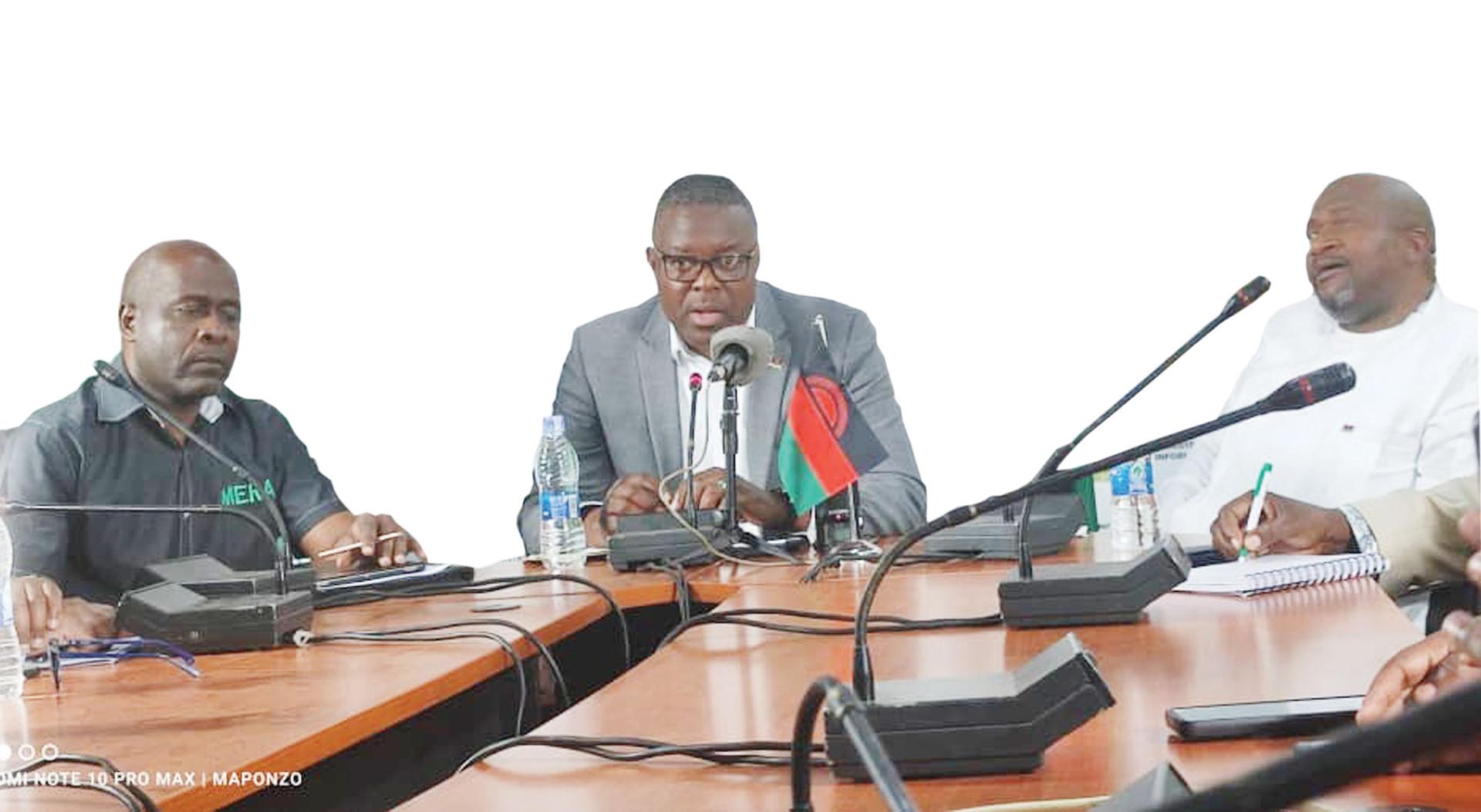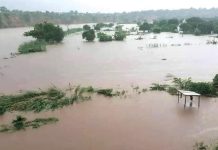Africa-Press – Malawi. Government officials were at pains Saturday to explain to Malawians the remedies they have in place to normalize permanently the fuel supply in the country as the situation worsens.
Queues in many fuel stations have become longer in the past week leading to a thriving black market where the commodity is fetching as high as K5, 000 per litre in some cases.
Saturday, Minister of Information Gospel Kazako called for a press briefing to update Malawians on the status of commodity’s supply. Kazako said government sympathises with Malawians who are struggling to get the strategic commodity. He admitted that it is not pleasing to hear Malawians vent and pour out their frustrations.
He challenged Minister of Energy Ibrahim Matola and Malawi Energy Regulatory Authority (Mera) Chief Executive Officer Henry Kachaje who were at the press briefing to give realistic assurances to Malawians on what is happening on the ground to ease the situation.
Matola could not give clear indications and feasible timelines on when the situation is expected to improve. Instead, he dwelt on comparing the current situation to the 2012 crisis which he claimed was worse than what it is now.
“For those of you who have been around you will agree that the 2012 fuel crisis was worse than what we see now, all because there were no strategic fuel reserves.
“The inauguration of the 60-million-litre reserves in 2014 was aimed at dealing with stockouts,” he said.
Asked on what has happened to the $50 million revolving credit facility from the board of Arab Bank for Economic Development in Africa (Badea) for fuel financing through National Oil Company of Malawi (Nocma), Matola said there is remaining paperwork from the office of the Attorney General to complete the agreement.
Kachaje outlined what he said are plans to remedy the crisis, but he stressed implementation depends on sustainable forex reserves. “To tell the truth in the next 48 or 72 hours we will still have these long queues since the fuel tankers take a minimum of seven days to be in the country from the port of Dar es salaam for instance.
“But it is our hope that by mid-November things will have started to normalize,” he said.
Kachaje said in recent months the country’s main fuel importers, Nocma and the Petroleum Importers of Limited (PIL), faced an acute disruption of forex reserves which saw them receive sanctions from their suppliers.
He said the companies were unable to pay for the commodity for about 10 days, forcing the governments of Mozambique and Tanzania to confiscate the commodity in their warehouses.
International energy regulations stipulate that landlocked nations should place advance orders of the commodity a month ahead and should be ready with payments on delivery, but the Malawian importers, according to Kachaje, have been unable to make the payments in time.
“What the country lacks is sustained supply of forex. When fuel gets to Beira in Mozambique or Dar es Salaam port in Tanzania there is need to clear it immediately, but such has not been the case in recent times because of the forex challenges.
And when that happens the government in those countries confiscate the commodity to their warehouses and redemption is not always easy,” Kachaje said.
He said Mera has since secured $60 million revolving credit fund through the Reserve Bank of Malawi and other commercial banks to improve fuel supply in the country.
“We have an indication from the central bank that they have made available some resources to help with the importation of petroleum products,” he said.
For More News And Analysis About Malawi Follow Africa-Press






